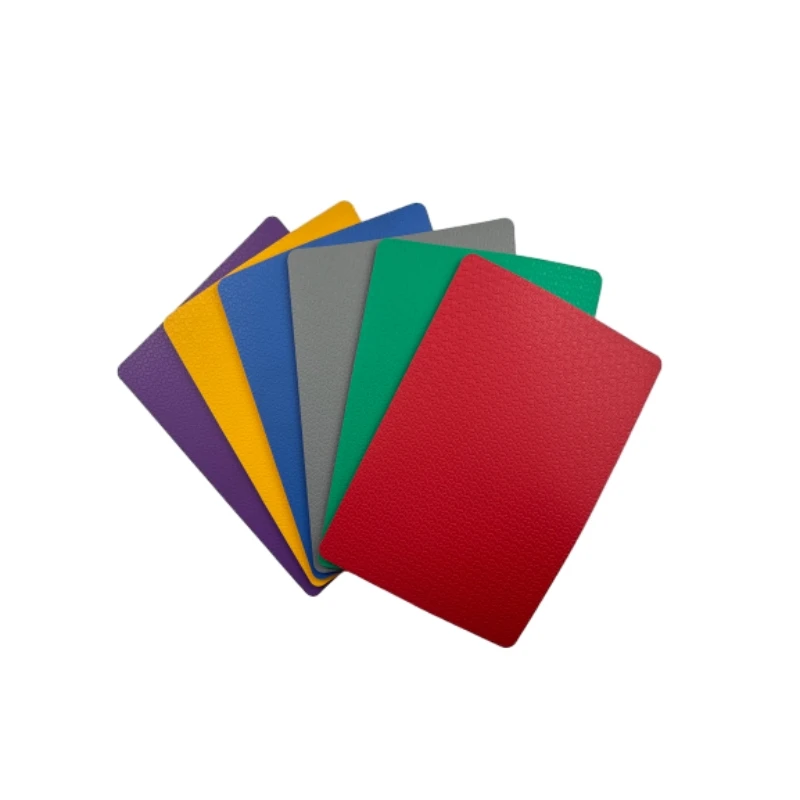Exploring Various Styles of Interlocking Tiles for Innovative Flooring Solutions
Exploring Different Types of Interlocking Tiles
Interlocking tiles are a popular choice in both residential and commercial applications due to their versatility, ease of installation, and aesthetic appeal. These tiles, which snap together without the need for adhesives, grout, or mortar, can be used for a variety of purposes, from flooring to wall coverings, and even outdoor patios. This article will explore the different types of interlocking tiles available in the market today, highlighting their unique features and applications.
1. Vinyl Interlocking Tiles
Vinyl interlocking tiles are one of the most popular options available. These tiles are made from high-quality vinyl, which makes them durable, water-resistant, and easy to clean. They come in a vast array of designs, colors, and textures, making them suitable for various settings, including homes, offices, and commercial spaces. Vinyl tiles are also relatively affordable, making them an attractive choice for budget-conscious consumers.
Rubber interlocking tiles are particularly favored for fitness areas, playgrounds, and areas requiring shock absorption. They provide excellent cushioning underfoot, reducing the risk of injury during falls. Moreover, rubber tiles are resistant to moisture, making them suitable for both indoor and outdoor use. Available in different thicknesses and colors, these tiles can be customized to fit the specific needs of any environment.
3. Porcelain Interlocking Tiles
Porcelain interlocking tiles are known for their durability and elegance. These tiles are fired at high temperatures, making them dense, strong, and less porous than other materials. Porcelain tiles are especially popular in areas that experience heavy foot traffic, such as offices and retail spaces. They are also available in a variety of styles, including options that mimic natural stone or wood, providing a sophisticated look without sacrificing durability.
different types of interlocking tiles

4. Composite Interlocking Tiles
Composite interlocking tiles are a blend of materials, typically including wood fibers and recycled plastics. These tiles are designed for outdoor use, making them ideal for patios and decks. They are resistant to moisture, fading, and insects, providing a long-lasting solution for outdoor spaces. Composite tiles can often be easily installed over existing surfaces, allowing homeowners to enhance their outdoor areas without extensive renovations.
5. Cork Interlocking Tiles
Cork interlocking tiles offer a unique combination of natural aesthetics and practical benefits. They are soft underfoot, providing excellent insulation and sound absorption, making them ideal for bedrooms and living areas. Furthermore, cork is a sustainable material, making it an eco-friendly choice for conscious consumers. These tiles are available in various colors and finishes, allowing for creative designs while maintaining a natural look.
6. Glass Interlocking Tiles
Glass interlocking tiles are an eye-catching option that adds a touch of luxury to any space. They are often used as accents in kitchens and bathrooms, reflecting light and creating a vibrant atmosphere. While they do require careful installation, the result is a stunning visual effect that can dramatically enhance the overall ambiance of a room. Glass tiles are also resistant to moisture and stains, making them practical for wet environments.
Conclusion
Interlocking tiles come in various forms, each offering distinct advantages suitable for different applications. From the durability of porcelain to the eco-friendliness of cork, there is a type of interlocking tile to fit any need or aesthetic. Whether you are looking to renovate your home, improve your commercial space, or redesign your outdoor area, considering the type of interlocking tile that best suits your requirements will lead to a beautiful and functional result. As always, proper installation is key to ensuring the longevity and performance of these versatile flooring solutions.
-
Commercial Parquet Flooring: Considerations of Aesthetics, Practicality, And SustainabilityNewsApr.15,2025
-
PVC Sports Flooring: Performance, Applications, And Development TrendsNewsApr.15,2025
-
PP Interlocking Floor: a Paving Solution That Combines Functionality and SustainabilityNewsApr.15,2025
-
Plastic Flooring Tiles Outdoor: Practicality, Sustainability, And Development ProspectsNewsApr.15,2025
-
On the Application of PVC Flooring for Badminton Court in Badminton VenuesNewsApr.15,2025
-
Commercial Wood Flooring: the Balance Between Aesthetics, Functionality, And SustainabilityNewsApr.15,2025
-
The Ultimate Guide to Futsal FlooringNewsMar.27,2025

